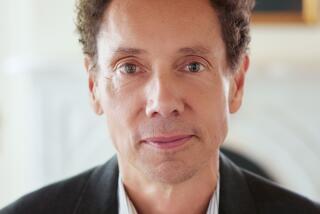The economy and corporate wealth; the MTA’s TAP card woes; Jonah Goldberg and an anti-Muslim backlash
Earning their keep? Not in Bell
Re “Bell council was paid for boards that seldom met,” Aug. 25
I propose that the words “earn,” “earned” and “earning” be banned from articles discussing the compensation of Bell city officials.
In the future, please report that those officials have been paid hundreds of thousands of dollars, not that they have earned those amounts, because what the officials have earned and what they have been paid are entirely unrelated to one another.
Though it is well established that those officials have received outrageous amounts of money from the city of Bell, it is also obvious that they have failed to perform services of sufficient value to have merited or earned the money they have been paid.
In fact, it appears to me that, had these city officials been paid based on the economic value of the services they rendered to the citizens of Bell, they would be living well below the poverty level.
The Times’ characterization of the shockingly inflated payments to these officials as having been “earned” by them legitimizes the officials’ misconduct and obscures the deceptions perpetrated on the citizens of Bell.
Carolyn Magnuson
Lakewood
Spreading the wealth
Re “It’s time to spread corporate wealth,” Column, Aug. 25
As usual, Michael Hiltzik is the voice of wisdom. The only way to bolster our weak economy is to concentrate on the health and wealth of the working class — the consumer class,
that is.
When Henry Ford decided to pay his workers enough that they themselves could afford to drive his automobiles, he created a healthy market that was once the envy of the rest of the world. What we have now is a nightmare of joblessness, rampant homelessness and fear of the future. Protecting the right of a few individuals to grow richer has ruined a once-thriving economy.
Instead of insisting that corporate taxes remain low and workers agree to lower wages and fewer benefits, we should be demanding a return to the progressive income tax that fairly levies high taxes on rich individuals and corporations, and reintroducing public policy to protect labor and punish companies that outsource jobs. As Hiltzik says: “When no one can afford to buy, no one has customers.”
Gloria J. Richards
Simi Valley
The cash belongs to the corporations, which, in turn, belong to the shareholders.
Are you proposing that this cash just be given away? Dividends and stock buybacks would be a more prudent use.
Corporations are not hiring because consumers are not spending. It is that simple. Why aren’t consumers spending? There is too much uncertainty about the future.
We do not know what government will do with taxes, Medicare, Medicaid, the deficit and wars and unrest in Iraq, Afghanistan and Pakistan. If the government would lay out a plan that we can believe, some of the uncertainties would be relieved.
The corporations are cash rich at this point because they trimmed their workforces and related spending when they saw the danger coming. If federal, state and municipal governments had done the same, they would not be begging for cash.
Kevin M. Minihan
Los Angeles
Hiltzik has a valid recommendation: Corporations should use surplus cash to hire more employees and improve job growth.
Let’s start with The Times hiring to achieve the, say, 2008 level of reporters. Then the paper could replace the missing California section, the Monday Business section, add high school sports back to the Sports section and more. Tribune sales would increase and so would profits. A win-win for the L.A. economy.
David Vandervoet
Los Alamitos
Don’t be so down on TAP
Re “Paperless, and clueless,” Editorial, Aug. 27
The Times correctly notes that Metro has faced challenges in rolling out its new smart card fare media, or TAP, but all these hurdles can and will be cleared soon. We’re dealing with them in a systematic way. And TAP is working — as evidenced by more than
15 million transactions monthly on buses and trains.
Moreover, most of our riders favor smart cards over paper tickets because it’s already speeding up bus boarding, cards can be purchased online and their value replaced if lost or stolen.
TAP ridership data also are helping Metro better manage service to meet demand.
The Times focused on gating rail stations but neglected to point out that Metro received $16 million from the governor’s Office of Homeland Security as part of Proposition 1B funding to offset the cost to make stations safer.
And even though the gates are not yet locked, we have seen an uptick in ticket vending machine revenue as would-be fare evaders think twice.
Arthur T. Leahy
Los Angeles
The writer is the Metro chief executive officer.
And now for a little satire
Re “An anti-Muslim backlash? Not in America,” Opinion, Aug. 24
Jonah Goldberg continues to improve as a satirist. His latest piece, in which he uses exaggeration to lampoon the right-wing habit of deliberately misinterpreting facts to reach absurd conclusions, is absolutely hilarious.
By comparing anti-Muslim crimes with anti-Jewish ones without considering population sizes and other factors, he highlights the lengths to which the talk radio crowd will go when trying to reach a conclusion that fits their preconceived notions.
My concern is that some Times readers will be misled into believing that Goldberg’s statements are intended to be taken seriously rather than as parody.
Geoff Kuenning
Christchurch, New Zealand
Goldberg makes some good points about the inequities of injustice, comparing persecution of other non-Muslims and the lack of a moderate Islamic uproar over their religion being co-opted and bastardized by terrorists.
Perhaps he’s just playing semantics in suggesting there’s no anti-Muslim backlash. The media, The Times included, reports daily on the bigoted demonstrations aimed at Islam and Muslims. The existence of bigotry aimed at other groups doesn’t diminish this.
I have one question for Mr. Goldberg: Are we reading the same newspaper?
Sam Pro
Chatsworth
Whether it’s Muslims at ground zero or gay couples in California, Goldberg seems to recognize only one right in the Constitution: the right to attack minorities.
Mr. Goldberg, rest assured that the right of the protesters to express their personal bigotry is protected by the 1st Amendment. But that right does not extend to the disenfranchisement of the people those protesters despise.
Raphael Mazor
Long Beach
More to Read
Sign up for Essential California
The most important California stories and recommendations in your inbox every morning.
You may occasionally receive promotional content from the Los Angeles Times.










